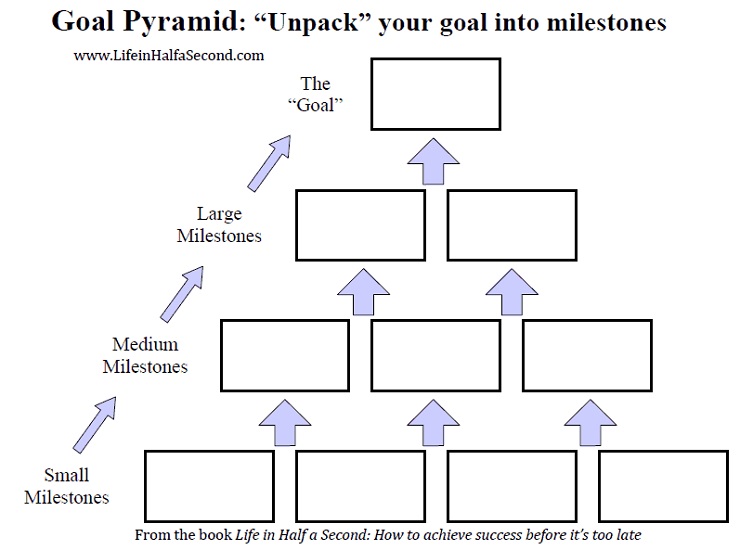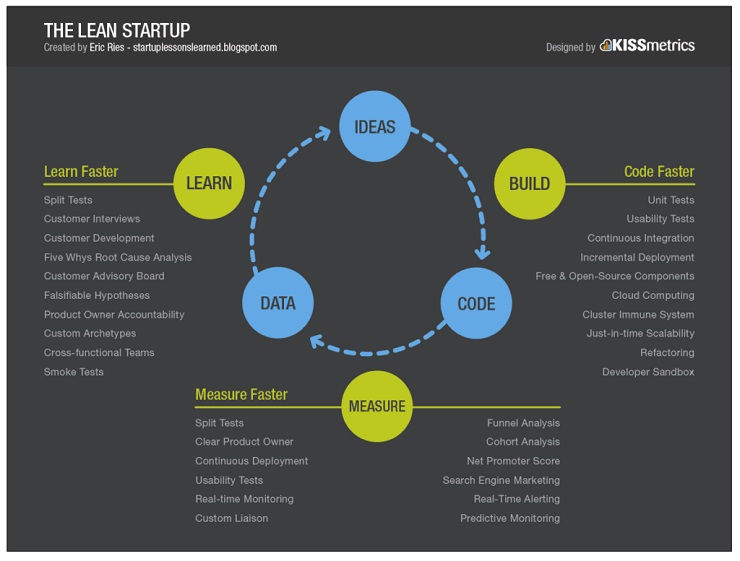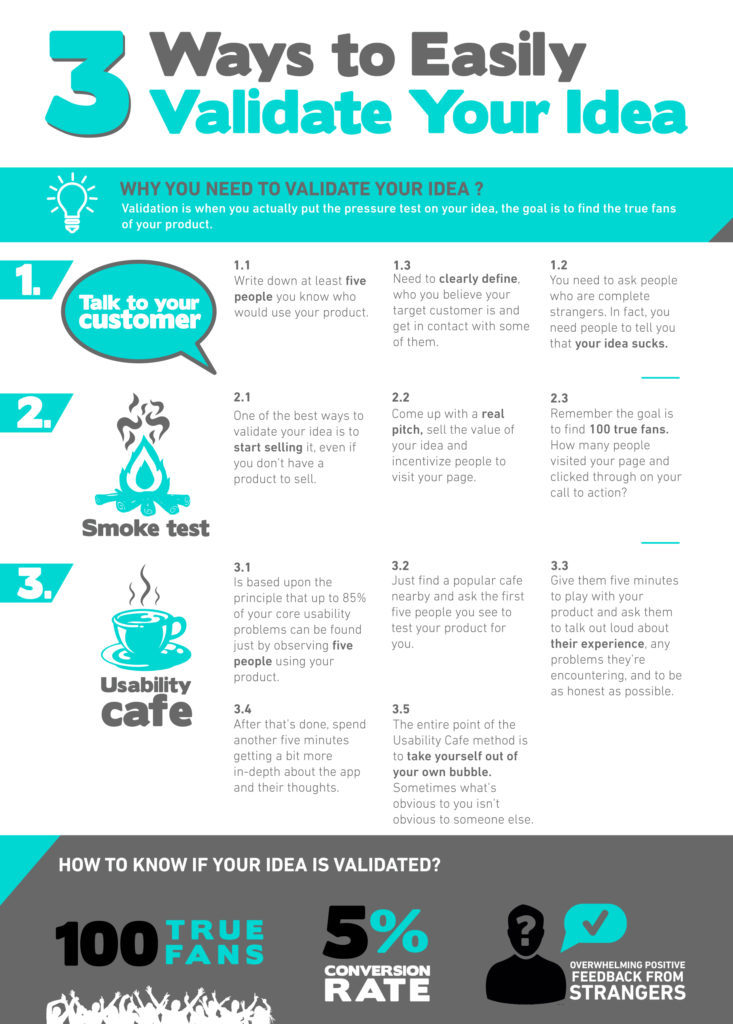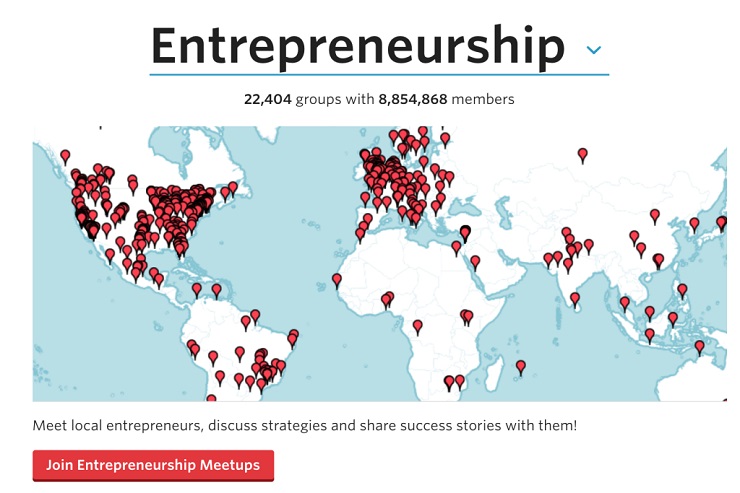“Entrepreneur is just French for ‘has ideas, does them.’” – Alexis Ohanian, co-founder of Reddit.
They say that the journey of a thousand miles begins with a single step.
Unfortunately, that first step is a doozie when you know a thousand-mile journey is what comes next. It’s also not always clear what that first step actually is.
If you’re reading this article, chances are you have an idea for a startup. You might even have more than one. They’re rattling around in your head, and you’ve been tinkering around with them here and there, but you’ve still yet to take that first proper step.
It could be because of a fear of failure, or you might not think it’s the right time, or perhaps you’re waiting for that perfect moment.
Whatever the reason, the fact remains that you have yet to take that first step.
Here’s the good news. Once you do, you’re going to realize just how much easier it is to take another one, and one more, and then keep on going. All you need is that little bit of momentum up front and you’ll find yourself running forward without a single look back.
It’s time to get those startup ideas out of your head and out into the real world. Every entrepreneur is different, and every one of you has a different reason for why you haven’t started yet.
But based on the most common scenarios we hear about at Foundr, here’s a list of different first steps you can take to get the ball rolling on your entrepreneurial journey.
OK, let’s take that first step.
1. Your Brain Is a Jerk
Your brain, to put it simply, is kind of a jerk.
The reason I say this, besides the fact that it has the impressive ability to recall all the most embarrassing moments of your life just when you want to fall asleep, is that your brain has a tendency to make things seem worse than they actually are.
It’s not necessarily its fault, just a byproduct of our natural fight-or-flight response designed to protect you from danger. But just like an overprotective parent, it can end up doing more than harm than good if you keep giving in to its excessive demands.
Just going to leave this here…
The point I’m trying to make is that there are many people who don’t do anything with their fantastic startup ideas because it looks too hard. Too risky.
The idea of building a business and all the work that goes along with it can seem like a huge monster in your head. It feels too overwhelming to take that first step because it means inviting so much other work down the road.
We’ve all experienced this on a much smaller level—there’s one annoying task nagging at you that you just keep putting off because you know it’s going to be a mess. But then you knock it out in a surprisingly short time, and wonder why you were so reluctant to take it on.
I’m not going to sit here and tell you that an entrepreneurial life is all sunshine and roses, because it’s not. But if you’re the kind of person who’s holding yourself back because the road looks far too difficult, or that there’s too much involved, you’re doing yourself a disservice.
If this mindset is holding you up, the best first step for you is to build a goal pyramid.
Developed by Matthew Michaelwicz, serial entrepreneur and mentor to our CEO and founder Nathan Chan. The goal pyramid is a simple diagram that allows you visually “unpack” your big goal into smaller, more achievable goals.
If all you’re focused on is the end goal of building a successful business that generates millions of dollars in revenue, no wonder you’re getting overwhelmed. But when you break it down into smaller pieces, you’ll be surprised to realize how just achievable all of it really is.
Figure out the milestones you need to hit in order to realize your startup dream, and make sure to add a deadline to each one of them. Research has found that setting a definite time and date makes you 91% more likely to complete a goal.
Instead of being afraid of how terrible and difficult the journey may be, create a map for yourself so you can confidently move forward instead.
Get Instant Access To Our Free Guide On How To Start a Profitable Online Business From Scratch!
2. How to Feel Like a “Real” Entrepreneur And Not an Impostor
Ironically, what holds many would-be entrepreneurs from taking action on their startup ideas is that they don’t view themselves as entrepreneurs. They won’t take action because the idea of actually being an entrepreneur doesn’t feel real to them.
You may like to believe that you’re a fairly open-minded person, but it actually turns out your subconscious accepts and rejects information according to what you want to believe. This is called cognitive dissonance, a psychological phenomenon first proposed by prominent social psychologist Leon Festinger.
Festinger hypothesized that all of us have a certain set of internal values, beliefs, or attitudes (cognitions). When these views are challenged by new information, it creates an internal conflict that’s extremely discomforting (that’s the dissonance). To guard against this, no matter how much evidence is presented, we’ll often either reject the information completely or misinterpret it in a way that aligns with our internal beliefs.
Think about anytime you’ve tried to have a civil discussion with someone about religion, politics, or even who was better between Tupac and Biggie.
We’ve learned not to speak about whether or not “All Eyez On Me” is the best album ever at the Foundr office…
But what does this have to do with taking that first step with your startup ideas?
Well, as we’ve learned in previous articles the power of belief is an incredible thing. If you simply believe that you’re going to be successful, you’re far more likely, and more willing, to work harder and find opportunities to succeed.
On the other hand, if you can’t change you internal beliefs and conceptualize that you truly are an entrepreneur, it’s very difficult to take actions or make plans that would reflect such a reality.
It just doesn’t feel right. We don’t believe that we can do it. In other words, we have to make it real. There’s a reason the phrase “have to see it to believe it” has become such a cliche.
That’s why it’s such an important step to just launch—to do something easily achievable that will validate your acceptance that you’re an entrepreneur starting a business. One of the easiest ways to do that is to build a landing page.
A landing page is a very basic web page that has one goal and one goal only. It might be to actually close a sale, but more likely it’s to collect email addresses as sales leads, which has the dual effect of validating whether your idea has potential customers.
This is a good place to start, because it’s incredibly simple to build a profitable landing page. All you really have to do to get started is register for a domain name on something like GoDaddy, or HostGator, and you’re off to the races.
Even if you don’t fancy yourself to be a web designer you can easily build your own website with pre-designed templates on software like WordPress, or Joomla. Or if you don’t mind spending a little money you can hire a professional web designer on sites like Fiverr or Upwork.
Sometimes all you need to get that confidence up is to see that you can do it.
Don’t sit around and wait for that perfect moment to walk right up and tell you you’re ready to be an entrepreneur. You might end up waiting for the rest of your life. Just launch and get started. Prove to yourself that you can do it, that you have what it takes to become an entrepreneur. A simple landing page is a great way to plant that flag.
3. Don’t Mess Up Before You Even Start! Validate Your Startup Ideas
On the opposite end of the spectrum, some new entrepreneurs completely ignore crucial first steps and just barrel forward. While commendable, that approach does open you up to an increased amount of risk or wasted money down the road.
That isn’t to say that entrepreneurs don’t take risks. Entrepreneurship is an inherently risky career, after all. They just don’t take unnecessary ones.
Before you go ahead and quit your job and start investing all your time and money into something that you’re not sure is going to work, take a moment to make sure that your startup ideas actually have some legs first.
A million-dollar idea doesn’t necessarily mean that you have a million-dollar business on your hands. There are countless stories of businesses that were great in theory but ended up collapsing and losing millions of dollars.
This is where the lean startup methodology comes in.
Originally developed by Steve Blank, before being popularized by Eric Ries in the past decade, the lean startup methodology was developed as a response to the wasteful Get Big Fast business model popular in the 1990s.
The lean startup methodology is based around the idea that instead of pouring in resources on a business that might not work, you must first validate your idea. This is a process that involves gathering unbiased customer feedback on your idea before you even go to market.
Only then, when you’re sure that there exists a market for you and that people are actually willing to pay for your product, do you start taking your startup ideas to the next level.
There are a number of ways to validate your idea, from setting up a landing page to conduct a smoke test, or simply getting out in the world and talking to your target customers. Foundr has some great resources on this here and here.
The most important thing is that you want to make sure you’re not simply getting feedback from friends and family. The entire point of validation is to get out of your head and get unbiased responses from actual customers.
Talking to people about your startup ideas is extremely important here, for validation as well as just getting the ball rolling. Going back to our last point, sometimes the mere act of talking to others about your idea, getting it out into the world to see what sticks to it, is enough to begin ushering your dream into reality. It both tests its worth and starts to make it real.
Get Instant Access To Our Free Guide On How To Start a Profitable Online Business From Scratch!
4. People Need People To Succeed, And So Do Entrepreneurs
It doesn’t matter if you only have one idea, many, or none at all. If you’re remotely interesting in becoming an entrepreneur and you’re not sure where to begin, make it a top priority to surround yourself with entrepreneurs.
History has taught us over and over again that one of the most common factors behind success, no matter what you do, is to be in the company of other successful people.
Just take a look at how famous industrialists like Thomas Edison, Henry Ford, and Harry Firestone, among others, would make a point to go on a camping trip with one another once a year. Or how the world would look very different today if it weren’t for the early friendship shared between Steve Jobs and Bill Gates.
Henry Ford, Thomas Edison, US President Warren Harding and Harvey Firestone camping together in 1921.
Studies have repeatedly shown how important your peer group is to your development as an entrepreneur. One study by Harvard researchers concluded that the individuals in your network, from your coworkers to your parents, greatly influence the level of success you’ll achieve.
The benefits of being part of an entrepreneurial community are invaluable, regardless of your level of experience or knowledge. You’ll be able to absorb more useful information from the conversations you have here than you ever could from a book.
Beyond just learning from people who have already gone out there and achieved what you want to achieve, being a part of an entrepreneurial community opens up countless opportunities. That could include finding a mentor who can help guide you, making connections with others who can help your career, or finding emotional and moral support from a new friend or business partner.
Connect with your local entrepreneurship community by finding groups and events through sites like Meetup or Eventbrite.
If you’re not particularly fond of going to in-person events, you can always connect with others online. Connecting with other like-minded individuals can help inspire and push you further along your own entrepreneurial journey.
5. Don’t Get Caught With Nothing To Say – Practice Your Pitch
Imagine, for a moment, that you’re on an episode of Shark Tank. You’re at a point in your business when you feel like you’re ready to be talking to potential investors. So what do you say?
Well, they’re waiting
Often, when I’m talking with other entrepreneurs, I’m surprised by how many are unable to clearly articulate their visions or goals for their companies.
Even in casual conversation, the question, “So what’s your business all about?” will often prompt some version of, “Well, we’re just getting started but it’s like this thing that will let people…hm how do I describe it…we’ve got a few pricing plans…um, I guess what we’re trying to do is…”
They’ve maybe set themselves some rough goals of how much money they’d like to earn, or how much they’d like to sell their company for. But beyond that, there’s no real idea of what they want to achieve.
When you’re first getting started building a business, it can be incredibly easy to get bogged down in the details. All the nitty gritty questions can hold you back, making you very prone to forgetting the bigger picture.
If you find yourself getting similarly lost in the minutiae, you should practice your pitch.
In 10 minutes or less, you need to be able to succinctly tell a story about your company, your business model, how you acquire customers, what’s unique about you, and what your overall vision is. If you could make your audience remember only one thing about your pitch, what would that be?
Don’t worry if you can’t answer all of the questions right now, the entire point of this exercise, after all, is to force you to think about the bigger picture.
Your startup ideas deserve a fighting chance, and the only way to do that is to concisely visualize what you want to achieve and how you’re going to get there.
This doesn’t mean you have to go all out and create an in-depth business model canvas for yourself. But it does help to take a little time out of your day to create a basic pitch deck to help you evaluate what you ultimately want out of your startup ideas.
Do more than just have a vague outline in your head of what you want to achieve. Get it out into the open and challenge yourself about what it is possible. Craft a vision that can inspire you and keep you going, no matter what.
Get Instant Access To Our Free Guide On How To Start a Profitable Online Business From Scratch!
Conclusion
Being an entrepreneur can be the most liberating and exciting journey of your life, but only if you’re willing to take that journey.
If you find your head filled with startup ideas but no idea what to do with them, you now have a whole list of different ways you can get started. You don’t have to achieve all of these things on this list, you might only do one or two, but the important thing is that you start moving.
Get that ball rolling and build up some momentum. Oftentimes you’ll find that what once seemed scary actually isn’t as bad you thought.
What was the first step you took on your entrepreneurial journey? What do you do with all your startup ideas? Let us know in the comments below!






























